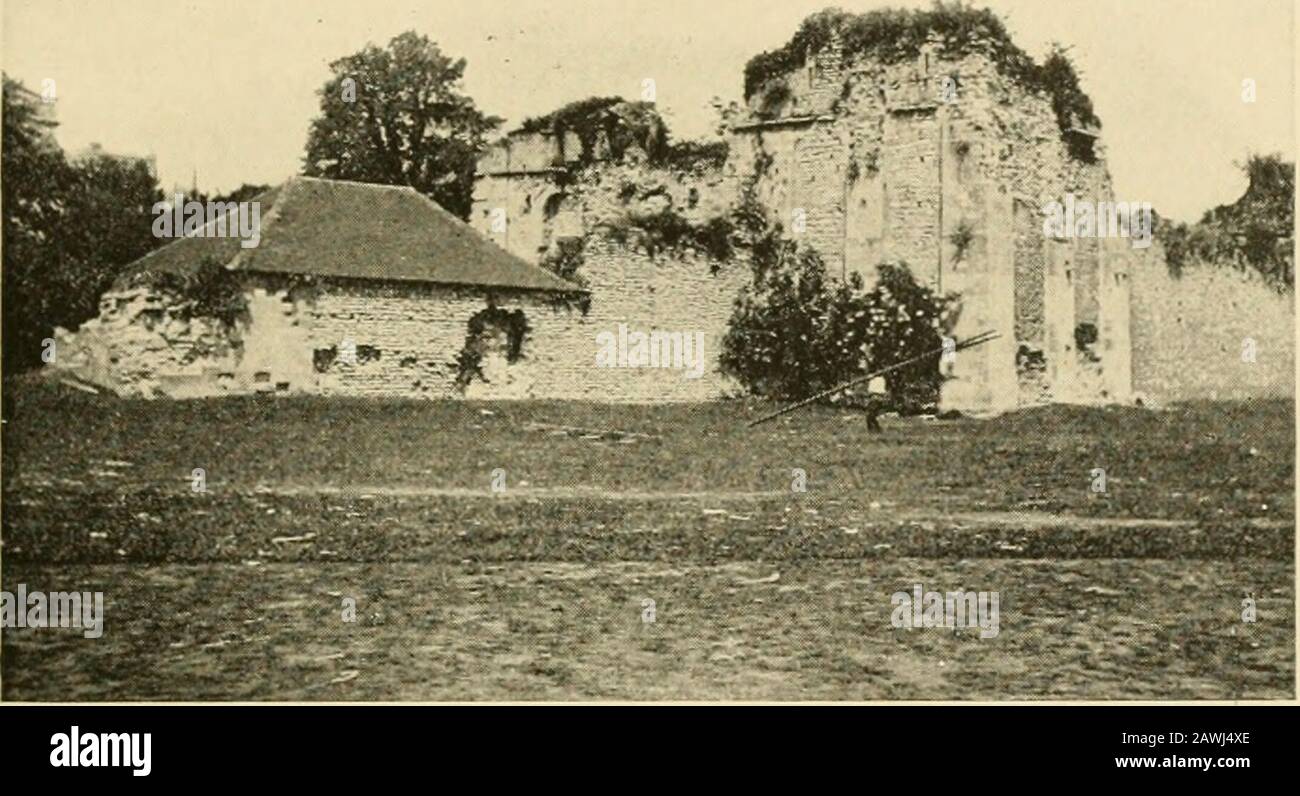Literary by-paths in old England . m, it is mainly because of itsreminiscences of Alfred the Great that the citypossesses such undying interest. After the lapseof a thousand years Winchester is still perme-ated by the presence of the great Anglo-Saxonking. Here he spent some part of his boyhood,pupil the while of that St. Swithun whose essentialgreatness of character is eclipsed in these days byhis supposed bad connection with the too waterynature of English skies. Alfred made Winches-ter the capital of the English people; there heheld his court what time his land was at peace;within its walls

Image details
Contributor:
The Reading Room / Alamy Stock PhotoImage ID:
2AWJ4XEFile size:
7.1 MB (374.3 KB Compressed download)Releases:
Model - no | Property - noDo I need a release?Dimensions:
2145 x 1165 px | 36.3 x 19.7 cm | 14.3 x 7.8 inches | 150dpiMore information:
This image is a public domain image, which means either that copyright has expired in the image or the copyright holder has waived their copyright. Alamy charges you a fee for access to the high resolution copy of the image.
This image could have imperfections as it’s either historical or reportage.
Literary by-paths in old England . m, it is mainly because of itsreminiscences of Alfred the Great that the citypossesses such undying interest. After the lapseof a thousand years Winchester is still perme-ated by the presence of the great Anglo-Saxonking. Here he spent some part of his boyhood, pupil the while of that St. Swithun whose essentialgreatness of character is eclipsed in these days byhis supposed bad connection with the too waterynature of English skies. Alfred made Winches-ter the capital of the English people; there heheld his court what time his land was at peace;within its walls he devised those wise laws whichwill ever lend a fragrance to his memory ; herehe directed the penning of that book which standsfirst on the illustrious roll of English prose. In370 IN OLD ENGLAND AVinchester, too, he laid down the burden of hislife, and the soil of that city holds somewhere tothis day the precious dust of that perfect king. In a thousand years, time plays sad havoc withthe visible environments of famous men, and. Wolvesev Castle hence it is not surprising that so far as stonesand mortar go, there is little left which can helpus to picture the conditions amid which Alfredpassed his life. But what little still exists mustbe sought mainly at Winchester. In the ruinsof Wolvesey Castle, for example, the historicimagination possesses rich material to aid it inconstructing a picture of one important phase ofAlfreds work. It was here that, at his com-371 LITERARY BY-PATHS mand and under his direction, the Anglo-SaxonChronicle was compiled and copied. By thecommon consent of scholars, this book is the firsthistory of the English people, and the earliestand most venerable monument of English prose.To stand among the ruins of Wolvesey Castle, then, is to stand at the fountain-head of our lit-erature. On this spot, within these grey, crum-bling walls, there took rise that stream of Englishwriting which for these thousand years has rolledonward, ever increasing in volume a